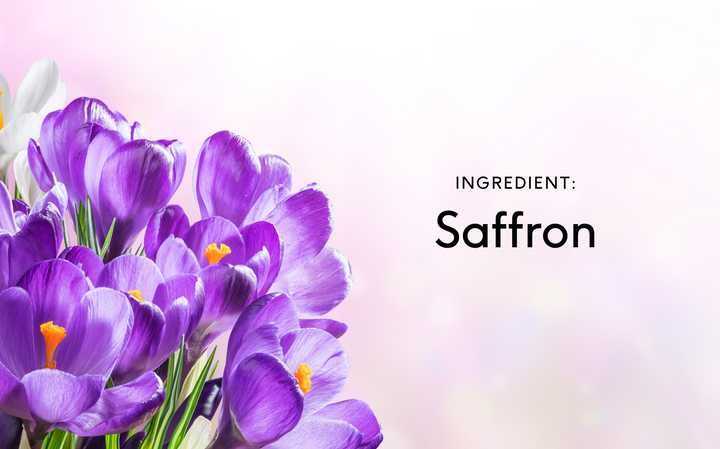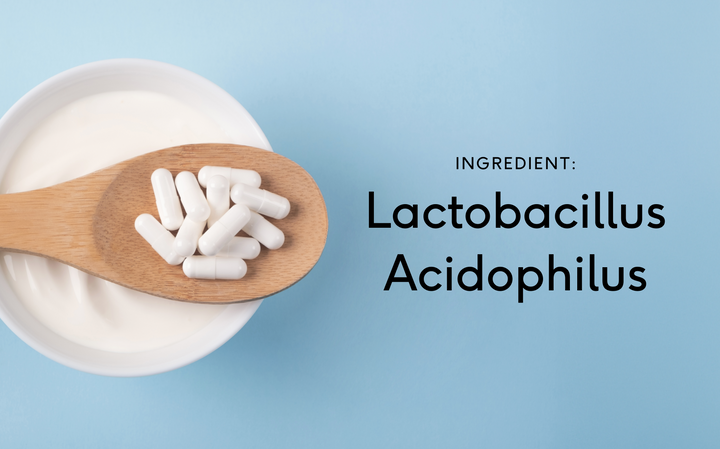Learn About Alfalfa in 5 Minutes
Table of contents

What is alfalfa?
Alfalfa, also known as Medicago sativa, is a flowering, perennial crop that has been used for health purposes for millennia. The flowers of the Medicago sativa plant produce seeds, and these seeds contain various compounds that are believed to have nutritional value. According to scientific research, alfalfa seed extract appears to have antioxidant, cardiovascular, metabolic, and various other benefits when taken orally.
Is alfalfa water-soluble or fat-soluble?
Medicago sativa extract contains both fat-soluble and water-soluble compounds. Most of the beneficial components of this seed extract are water-soluble, which means that they are absorbed into your system relatively rapidly.
Where can alfalfa be found naturally? Common sources of alfalfa:
The only known natural source of alfalfa seeds is the Medicago sativa plant itself.
What is the recommended daily value for alfalfa?
While this substance appears to have significant nutritional benefits, Medicago sativa seed extract has not been recognised as an essential nutrient, so there is no nutrient reference value (NRV) for this substance.
Can you absorb enough alfalfa from food?
The only efficient way to derive the benefits of alfalfa from food is to consume alfalfa seeds, which are not very appetising. Alfalfa sprouts also have nutritional benefits, but they lack many of the compounds present in alfalfa seeds that make Medicago sativa seed extract so beneficial to your health.
Why is alfalfa necessary for your body?
Like many other natural healing substances, alfalfa seeds contain compounds that are believed to have antioxidant properties. Antioxidants are special compounds that prevent oxidative stress from harming your cellular tissues. Medicago sativa seeds also contain unique compounds that may make them beneficial for a variety of common ailments and medical conditions.
Functions of alfalfa
- Potential antioxidant benefits: Research indicates that some of the components in Medicago sativa seed extract exert antioxidant effects in the body. The purported antioxidants in alfalfa are most concentrated in this plant’s seeds.
Alfalfa contains powerful antioxidants known for protecting the skin against the damaging effects of oxidative stress, which is why we've included 100mg of Alfalfa in Feel Beauty Probiotic+.
- Potential cardiovascular benefits: Clinical studies suggest that natural plant compounds called saponins, which are highly concentrated in alfalfa seeds, reduce levels of LDL (bad cholesterol) in your blood.
- Potential diabetes benefits: Some research indicates that alfalfa seed extract may reduce blood sugar levels by stimulating insulin release from the pancreas.
- Potential menopause benefits: Alfalfa seeds contain substances called phytoestrogens, which mimic the chemical composition of oestrogen. Women enduring menopause suffer from decreased levels of oestrogen, and research suggests that ingesting phytoestrogens could reduce the symptoms of menopause.
- Potential urinary tract infection benefits: Alfalfa seed extract appears to act as a diuretic, which means that it may have the potential to help with urinary tract infections and kidney stones.
When should you take alfalfa?
Even if you’re in perfect health, many of the compounds in this natural seed extract are widely regarded as antioxidants, which means that taking alfalfa seed extract may help your body protect itself from the harmful effects of oxidative stress.
How long do you need to take alfalfa to start experiencing its benefits?
Most of the beneficial components of alfalfa seed extract are water-soluble, which means they will absorb into your body relatively rapidly. Repeated ingestion of alfalfa extract is necessary, however, to experience positive results. Generally speaking, you might notice beneficial effects 3-7 days after you start taking alfalfa seed extract.
Consistency is key and our research recommends taking your Feel supplements for at least 3 months to allow your body to adjust and provide you with the desired benefits.
How long does it take for your body to digest/absorb alfalfa?
Your body will absorb the water-soluble compounds in alfalfa seed extract within around 24 hours. It may take significantly longer for your digestive system to process this extract’s fat-soluble components, however.
How long does alfalfa stay in your body after you take it?
The water-soluble components in alfalfa extract will stay in your body for around 1-3 days, and the fat-soluble components in this extract may remain in your body for 30 days or longer.
Is alfalfa an antioxidant?
Research indicates that a variety of the components of Medicago sativa seed extract may have antioxidant properties.
Can you overdose on alfalfa? What are the effects?
There are no known cases of acute alfalfa seed overdose. Long-term use of high concentrations of the compounds present in alfalfa seed, however, could overstimulate your immune system or lead to increased blood oestrogen levels. Therefore, it’s best to stick to the safe concentrations of this substance present in our products.
Does alfalfa dissolve, flush out, or build up in the body?
Most of the active components in alfalfa seed extract dissolve and flush out of your body relatively quickly. Some components, such as phytoestrogens, may build up over time.
Can you take alfalfa during a diet?
Alfalfa seed extract is vegan and gluten-free, so it does not conflict with any dietary restrictions you may observe.
Are there synthetic forms of alfalfa?
Synthetic or “artificial” alfalfa seeds have been developed for the cultivation of this crop. These artificial seeds are not used, however, to make alfalfa seed extract.
Absorption rate of synthetic alfalfa
No data are available regarding the potential absorption rate of synthetic Medicago sativa seed extract.
Why might natural forms of alfalfa be better?
Since the benefits and risks of artificial alfalfa seeds are not yet known, it is highly advisable to use natural forms of alfalfa seed extract.
How to take alfalfa
While it’s possible to consume raw alfalfa seeds, the beneficial components in this natural healing plant are best consumed in the form of alfalfa seed extract.
Alfalfa trends in medicine
A 2016 study found that the components in alfalfa seed extract reduce the oxidative stress caused by iron nanoparticles. Since metal poisoning appears to worsen neurodegenerative disorders, this research indicates that alfalfa seed may be useful for conditions like Alzheimer’s disease and dementia. Furthermore, a 2015 study determined that alfalfa seed extract may reduce both fat and glucose levels in the blood, which indicates that this natural substance could be useful for treating obesity and diabetes.
Sources
1. Antioxidant Effects of Alfalfa Can Improve Iron Oxide Nanoparticle Damage: Invivo and Invitro Studies
2. Evaluation of Antioxidant and Cerebroprotective Effect of Medicago Sativa Linn. Against Ischemia and Reperfusion Insult
3. Alfalfa Seeds Lower Low Density Lipoprotein Cholesterol and Apolipoprotein B Concentrations in Patients With Type II Hyperlipoproteinemia
4. Alfalfa seeds: Effects on cholesterol metabolism
5. Evaluation of Medicago Sativa L. Sprouts as Antihyperlipidemic and Antihyperglycemic Agent
6. Pancreatic and Extra-Pancreatic Effects of the Traditional Anti-Diabetic Plant, Medicago Sativa (Lucerne)
7. Treatment of Neurovegetative Menopausal Symptoms With a Phytotherapeutic Agent
8. Identification of medicinal plants for the treatment of kidney and urinary stones










































 Back
Back





